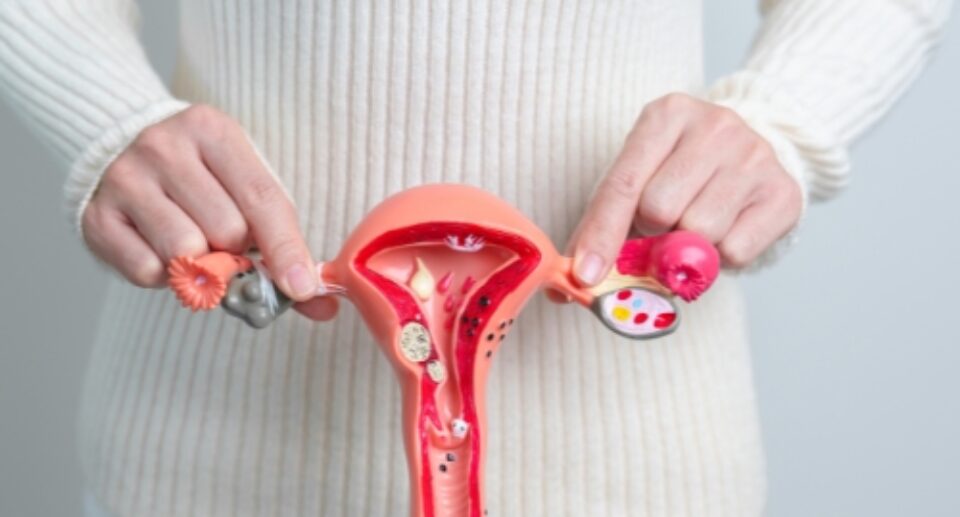Uterus Artificial Embryos Infertility: A Fertility Breakthrough

Infertility is a heartbreaking struggle that has affected millions of couples all over the world. Not being able to conceive naturally can be a long and painful mental process, with hope being the option for the majority of individuals. However, thank God, some advancements have been achieved in the world of medical science. New technology like womb transplantation and artificial embryos is revolutionizing treatments for women’s infertility. These innovations mark a major shift in the field of uterus artificial embryos infertility, giving new hope to individuals who have lost every hope of being parents.
Imagine a world where a woman without a womb can experience pregnancy or where embryos are created without traditional sperm and eggs. Science is making this possible, and here we will explore how these groundbreaking innovations are changing the landscape of infertility treatment.
What is a Uterus Transplant? A Breakthrough in Uterus Artificial Embryos Infertility Treatment
A surgeon performs a womb transplant, or uterine transplant, by implanting a normal uterus in a lady who has no uterus or a poor uterus for pregnancy. Therefore, it is a miracle to such women born without a womb, as well as women who have had their uterus removed by a certain medical condition, or those women having an unnecessary uterus, which ultimately leads to failure to get pregnant.
Who Can Benefit from a Uterus Transplant?
Uterus transplant is a new surgical technique that can be helpful for those females who are unable to give birth because of a deficiency or any deformity in the uterus. The most appropriate categories of women who can benefit from this method are represented below in detail:
1. Women Born Without a Womb (Mayer-Rokitansky-Küster-Hauser Syndrome—MRKH Syndrome)
What is MRKH Syndrome?
Mayer-Rokitansky-Küster-Hauser (MRKH) syndrome is a condition when a girl is born without ever having a vaginal canal or a uterus but does have normal ovaries and exterior genitals.
How Does It Influence Fertility?
Since these females don’t have a uterus, they are incapable of carrying a pregnancy independently. Nevertheless, they do ovulate, so a uterine transplant with IVF is the remedy for their barrenness.
How Can a Uterus Transplant Beneficially Support?
A uterine transplant allows them to get pregnant and carry a pregnancy with their own eggs and IVF technology without requiring them to use surrogacy.
2. Women Who Lost Uterus Due to Medical Reasons
Some doctors may force women to have an operation to remove their uterus due to serious medical diseases that make them incapable of having children. Uterus transplantation provides them with a second opportunity to have children.
General Reasons for Hysterectomy (Removal of the uterus):
- Cancer Surgery: Ovarian, cervical, or uterine cancer patients can be operated upon with hysterectomy as a life-saving surgery. They are no longer fertile.
- Severe Fibroids: Multiple or large fibroids in the uterus may lead to heavy bleeding, pain, and infertility and normally need to be removed by hysterectomy.
- Severe Infections & Complications: Repeated infections, uterine rupture, or pregnancy emergencies (e.g., hemorrhage after childbirth) may lead to irreversible damage to the uterus, making hysterectomy necessary.
How Can a Uterus Transplant Help?
With a transplanted uterus, such women can become pregnant with IVF and, as a result, give birth to a child at term, thereby restoring their potential as mothers.
The indications are:
3. Women with a Large Uterus or Extensive Uterine Damage to Prevent Pregnancy
Other women have an abnormally shaped, broken or non-viable uterus and are unable to carry a pregnancy.
Conditions that may Cause Uterine Damage:
- Bulky Uterus: Uterine enlargement secondary to adenomyosis, fibroids, or endometriosis, which disrupts implantation and maintenance of pregnancy.
- Uterine Scarring (Asherman’s Syndrome): Extensive intrauterine scarring as a result of infection, frequent D&Cs (dilation and curettage), or prior surgery can result in miscarriage and infertility.
- Congenital Uterine Malformations: Women are born with congenital uterine malformations (e.g., septate or bicornuate uterus) incompatible with the success of pregnancy.
- Thin or Weak Uterine Lining: An inadequate endometrial lining cannot provide the support necessary for embryo implantation, causing repeated IVF failure or miscarriage.
How Can a Uterus Transplant Help?
With the faulty uterus removed and a healthy donor uterus implanted in its stead, these women can carry to term, and thus offer an innovative new solution to their reproductive issue.
Artificial Embryos: One Step Toward the Future of Reproduction
Science is attempting to create ways of constructing embryos with stem cells, without the use of normal sperm and eggs. This technology could transform IVF success, especially in extremely infertile people.
Why Are Artificial Embryos Important?
- They have the potential to allow gay parents to biologically give birth to their offspring.
- They offer renewed hope to those with gene diseases that make them sterile.
- They can potentially enhance IVF success.
Though this technology is still in its early stages, scientists believe that it will revolutionise the way we approach infertility in the future.
How These Advances Can Revolutionize Infertility Treatments
Remarkably, the combination of uterus transplants and artificial embryos can make parenthood possible for those who never believed it would. Furthermore, these advancements can:
- Offer more opportunities for women who had removal of the uterus.
- Offer solutions to women with retroverted uterus or anteverted uterus and infertile conditions.
- Reduce dependence on traditional IVF treatment with improved embryonic development.
Despite disasters such as the colossal expense of IVF, ethical issues and medical treatment side effects, there are clear alternatives for the future.
Advantages of Uterus Artificial Embryos Infertility Breakthroughs for Hopeful Parents
They offer a chain of advantages, including:
- Restoring Fertility: Women who were not previously capable of having children are now able to become pregnant.
- Expanding Parenthood Options: Provides parenthood to women without a uterus, women with large uteruses, and people.
- Lessening Surrogacy Demand: Provides women the option to carry their child instead of surrogates.
- Encouraging Reproductive Studies: Encourages increased IVF, embryo research, and infertility research treatments.
- Emotional and Psychological Well-being: This brings optimism and completion to the many individuals who long wanted to be in a position where they could share the experience of pregnancy.
Risks and Challenges
They are a new technology, and with everything else medical treatment entails, there’s danger involved. But with science, continuous advancements iron everything out and improve it, decreasing danger while maximizing efficiency for interventions.
Risks:
- Surgical Risks: Each large operation will always have side effects, but extremely talented doctors perform uteri transplants.
- Transplanted Uterus Rejection: The body rejects the new organ, but the issue can be managed through pills.
- Immunosuppressive Medicine: More is required in terms of treatment, but the medicine is being rendered harmless because of improved medicine.
- Cost and Accessibility: IVF treatment and uterus transplant are expensive, but they are affordable in India.
- Ethical Concerns: Lab-created embryos are ethically troubling, but with strict regulations to provide ethical benefits.
Apart from these issues, constant improvements in medical technology are rendering treatments advanced, economical and patient-friendly worldwide.
Why India Leads in Uterus Artificial Embryos Infertility Solutions?
India has become a treatment hub of choice for women’s infertility, IVF, womb transplants and other high-tech fertility treatments. Why?
- Low Cost of IVF: IVF in India is significantly lower in expense than in Western countries, hence economical.
- World-Class Physicians & Medical Facilities: India has the world’s best fertility specialists and world-class medical facilities.
- Extremely High Success Rates: Indian fertility centers have extremely high success rates for IVF, uterine transplants, and other similar procedures.
How Regimen Healthcare Supports Uterus Artificial Embryos Infertility Patients?
We at Regimen Healthcare take patients to meet the top fertility specialists and top hospitals that have experience in conducting uterus transplants, IVF, and women’s infertility treatment. The following are what we do for you:
- Personalized treatment plan.
- Direct access to top fertility specialists.
- Travel, visa, and accommodation support.
- Transparent and clear price and cost policy.
- Patient care throughout the process.
We ensure that all our patients receive the best care at an affordable cost, making parenthood possible for everyone.
Conclusion: A New Era in Infertility Treatment
Undoubtedly, the development of uterus transplants and artificial embryos is revolutionizing the landscape of the future of infertility treatment, providing hope to millions. Moreover, the development provides women who lack a womb, women with womb disorders, and lesbian couples an opportunity to become biological mothers. Although there are still costs of IVF, ethical concerns, and medical complications, technology and research are still lowering the cost and enhancing the safety of the treatments.
Over the years, India has emerged as a global destination for reproductive medicine with high-quality fertility treatment at affordable rates. In this regard, Regimen Healthcare makes the patients feel it by bringing them in touch with the best fertility specialists and, additionally, arranging foolproof medical, travel, and stay for them.
If you and your spouse are facing infertility, don’t lose hope. The future never seems brighter. Pick up the phone and dial Regimen Healthcare today and get to know what can be done for you and take the first step towards being a parent.
Get In Touch Today!
Regimen Healthcare: Your Reliable Companion in Fertility Solutions
Email: [email protected]
WhatsApp: +91-9310356465
Website: www.regimenhealthcare.com
Make new life your dream!
Frequently Asked Questions (FAQs)
1. To whom can a uterus transplant be offered?
Women who were born without a uterus, have undergone a hysterectomy, or have uterine abnormalities that make them unable to become pregnant are eligible for a uterus transplant.
2. Can the baby be carried to term in a transplanted uterus?
Yes, women who receive a successful uterus transplant can, with the help of advanced reproductive techniques, conceive using IVF, become pregnant, and eventually carry the child to full term with medical assistance.
3. What are artificial embryos and how do they work?
Scientists construct artificial embryos from stem cells rather than the normal sperm and eggs. The new technology may one day help correct infertility in individuals who cannot develop healthy eggs or sperm.
4. How much does a uterus transplant cost in India?
It is affordable based on the procedure and hospital, but affordable than in Western countries. Have your quote at Regimen Healthcare.
5. Can IVF treatment be done affordable in India?
India is the place to be for affordable yet high-success rate IVF treatments, and this explains why it attracts so many foreign patients.






